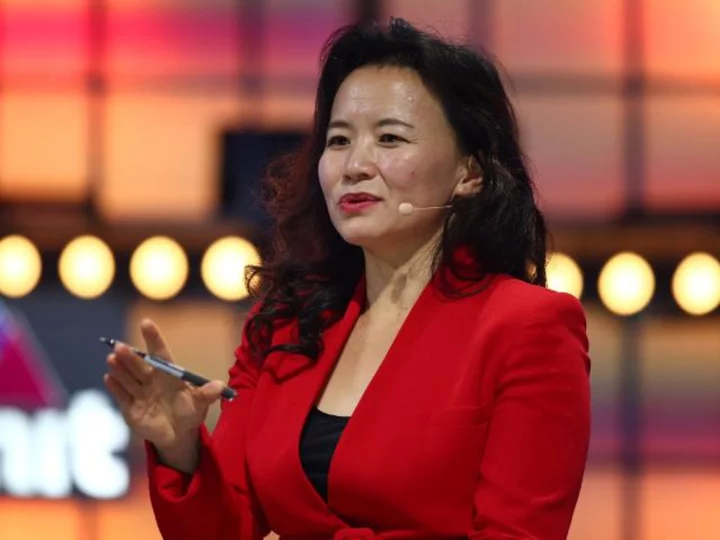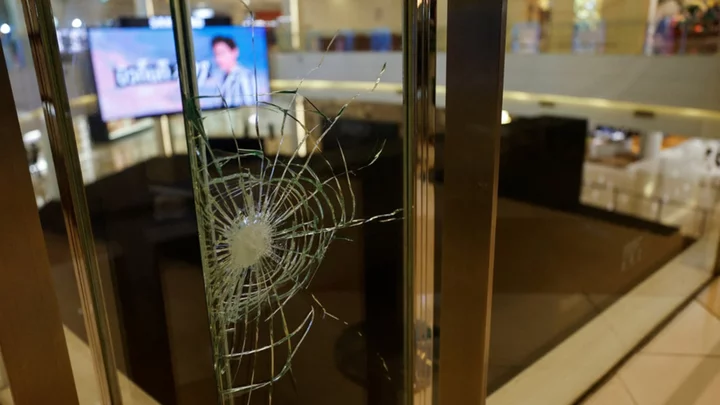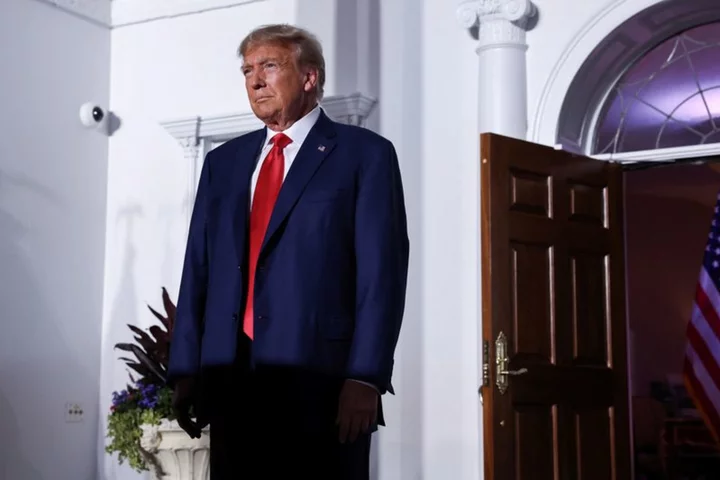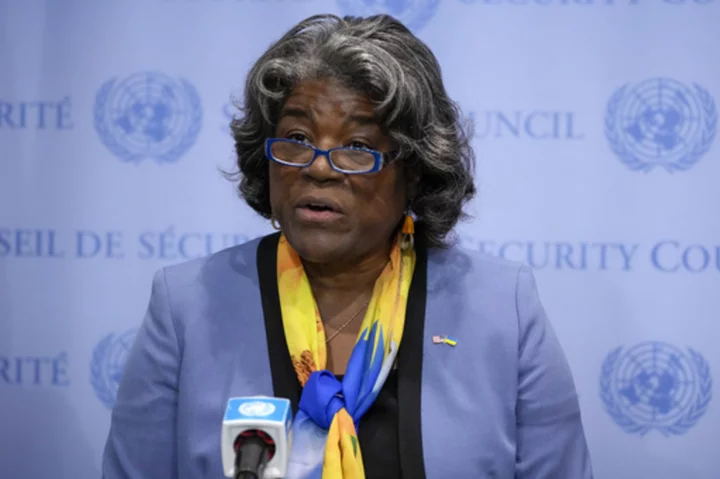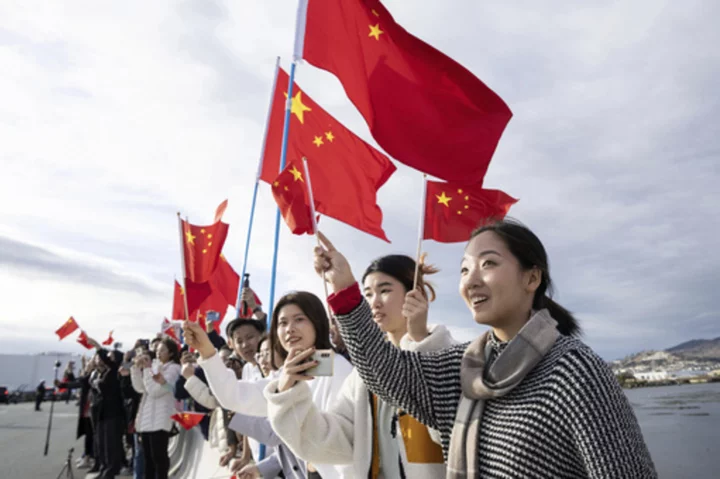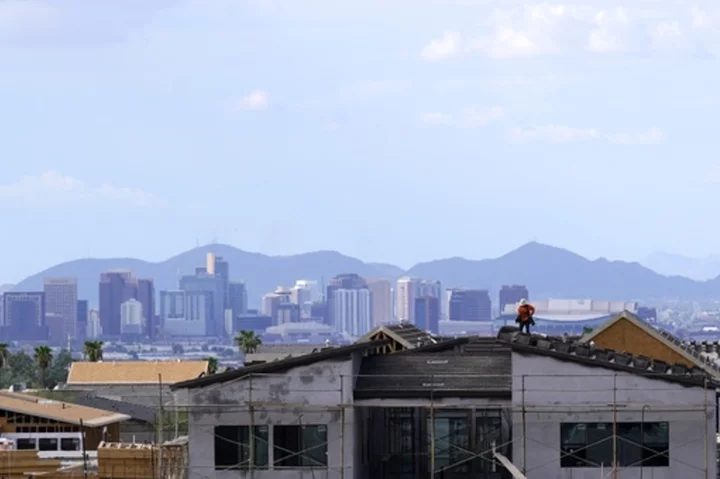Pakistan's former Prime Minister Imran Khan has appeared in court to answer corruption charges, a day after he was dramatically arrested by paramilitary troops, sparking deadly clashes.
The charge relates to the sale of gifts sent to him by foreign leaders while in office. His lawyer told CNN Khan rejects the indictment.
Khan was arrested on Tuesday in another corruption case, where he is accused of the illegal acquisition of land and construction for a university.
His arrest has turbocharged an already tense showdown between the country's powerful military and his supporters, who hit the streets and sparked unprecedented scenes as angry crowds broke into and vandalized the homes of army personnel.
Three of his supporters have died in the clashes and nearly 30 others injured, a spokesperson at a hospital in the city of Peshawar said.
Clashes continued Wednesday with hundreds of Khan's supporters storming the headquarters of the national broadcaster Radio Pakistan in Peshawar, according to a CNN journalist at the scene.
Photos from Peshawar's streets showed security forces firing teargas at crowds, some of whom used slingshots.
Police said nearly 1,000 Khan supporters had been arrested in Punjab province after 25 police vehicles and more than 14 government buildings were set on fire, Reuters reported.
Authorities in three of Pakistan's four provinces have also imposed an emergency order banning all gatherings, Reuters added.Ahsan Iqbal, Pakistan's minister for planning and development, told reporters on Wednesday that Khan had "chosen a path of spreading anarchy, chaos and destruction" to "protect himself from accountability."
"I want to assure there is no political vendetta," he added.
Wednesday's hearing took place in the police station rather than a court to "keep him away from the public", police said.
Video before Khan's arrest on Tuesday showed paramilitary forces breaking a window to get to the politician as he watched impassively at the unfolding chaos. Khan was then led into a vehicle surrounded by dozens of security officers and escorted away.
In a pre-recorded statement released on YouTube by Khan's Pakistan Tehreek-e-Insaf (PTI) political party after his arrest, the former prime minister said he was "detained on incorrect charges" and told his supporters "the time has come for all of you to come and struggle for your rights."
"I have always followed the law. I am being apprehended so that I can't follow my political path for this country's fundamental rights and for me to obey this corrupt government of crooks which has been hoisted on us," he said in the video.
Violent protests broke out in several cities that afternoon.
Khan supporters armed with sticks broke into the military's headquarters in the city of Rawalpindi, just outside the capital, chanting in support of the former leader.
Protesters also blocked one of the main thoroughfares into Islamabad, throwing stones and pulling down street signs. A police vehicle was set ablaze, resulting in police retaliating with tear gas.
Meanwhile, in the southwestern city of Quetta, a Khan supporter was shot and killed by police at a protest, according to a CNN journalist at the scene.
Authorities blocked mobile internet services shortly after in a bid to quell the chaos, disrupting access to Twitter, Facebook and YouTube in the nation of 270 million. Private schools across the country were ordered shut on Wednesday, according to the Private Schools Association.
At least 43 protesters were arrested in Islamabad Tuesday, the city's police said on Twitter.
Syed Baqir Sajjad, a Pakistan Fellow at the Wilson Center in Washington, said that although previous Pakistani leaders had faced arrest, and politicians had in the past challenged the military's dominance, Khan's significant public support made this situation "unique."
"The risks faced by Pakistan in this situation are numerous," he said. "The military's image as a unifying force and the guardian of the state has been seriously challenged, which has led to a loss of public trust in the institution. This, in turn, could lead to instability and social unrest."
Pakistan in crisis
Khan was ousted in a parliamentary no-confidence vote last year and has since led a popular campaign against the current government led by Prime Minister Shehbaz Sharif, accusing it of colluding with the military to remove him from office.
The former star cricketer turned populist politician denies the charges leveled against him, instead accusing Sharif and the military of playing a political game. The military and Sharif -- who was recently in the United Kingdom after attending the coronation of the British monarch -- deny Khan's accusations.
The tensions have brought Pakistan, a nuclear-armed country of some 220 million people that has for decades grappled with political instability, into unknown territory and have often boiled over into violence.
Last November, Khan survived a shooting at a political rally, in what his party called an assassination attempt.
And in March, chaos erupted outside Khan's Lahore home after hundreds of his supporters challenged police and paramilitary troops who had arrived to escort him away. Officers were forced to suspend the operation after protests turned violent -- one of multiple unsuccessful attempts by police to arrest Khan.
Khan's claims have struck a chord with a young population in a country where anti-establishment feelings are common, and are being fueled by a rising cost of living crisis as soaring inflation makes ordinary goods increasingly unaffordable.
"This has put increased pressure on the military establishment, which is feeling the heat more this time," said Sajjad. "The intensity and consistency of Imran Khan's attacks on the military, especially after being ousted from office last year, are unprecedented."
Amid the crisis, the government has so far failed to reach an agreement with the International Monetary Fund to restart a $6.5 billion loan program that has stalled since November, in an effort to keep the economy afloat.
The political upheaval appears to have bolstered Khan's popularity. Last year, his PTI party won local elections in the country's most populous Punjab province, seen as a litmus test for national elections.
The political polarization and economic crisis had placed Pakistan at "a critical juncture," and the situation had the "potential to become a permanent crisis," Sajjad said.
Pakistan's future trajectory "will largely depend on how its leaders navigate the ongoing crises and whether they can find a way to address the people's grievances and restore stability," he added.


